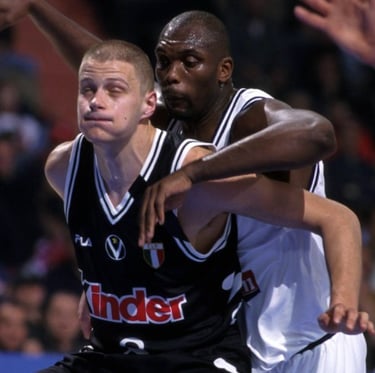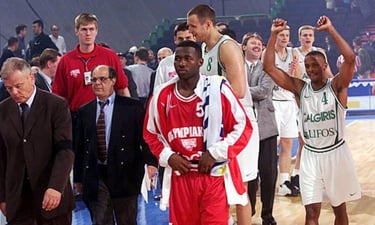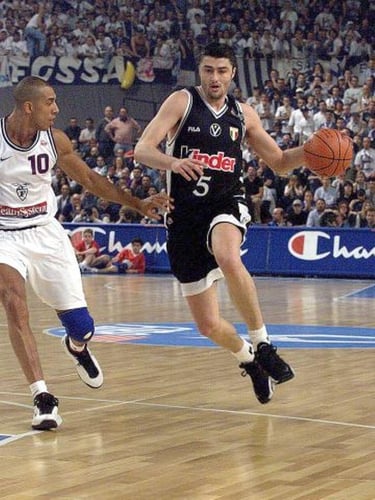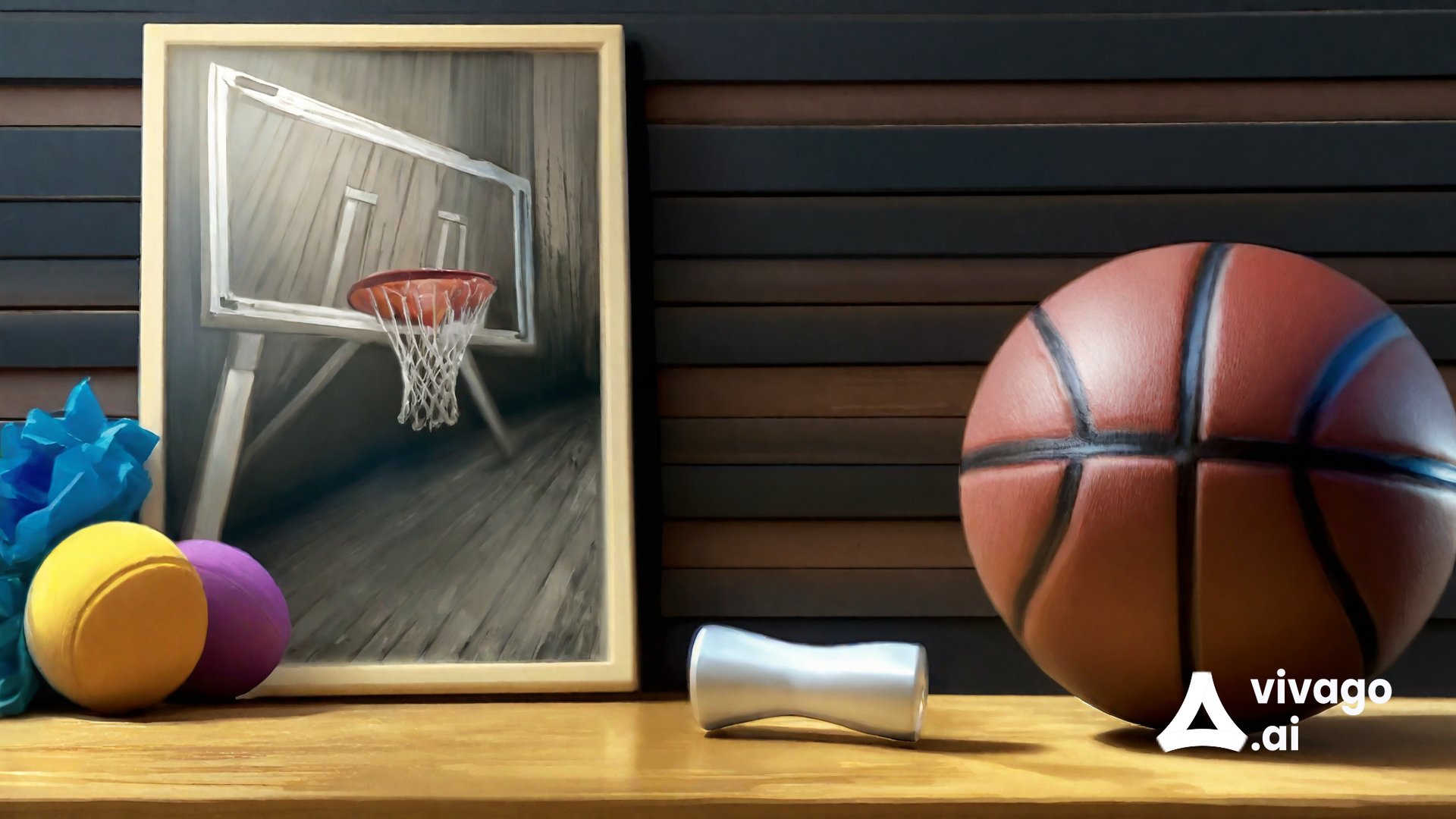
Final Four -Munich 1999
"The venue of great surprises"
RETROFFF (FINAL FOUR FOLKLORE)
Antreas Tsemperlidis
5/22/20254 min read
He lifted his head and looked at the clock. Just a few seconds remained until the end. This time, he wasn’t rushing at all, unlike that night on March 19, 1995, when Tyus Edney etched his name in golden letters in the history of the UCLA Bruins. With barely any time left on the clock, he took the ball and sprinted toward Missouri’s basket. Almost at the buzzer, the short Tyus drove into the paint and, under pressure, scored the winning basket. UCLA advanced to the next round and eventually claimed the college championship.
This is our last piece of the first part of FFF from the late 80s & the 90s and it takes a rather surprising turn.... Antreas continues his FFF series so lets roll back the years once more. Here is how the F4 story continued to unfold...
Four years later, Edney would lift another major trophy. As a member of the “rocket-powered” Zalgiris Kaunas, a team that delighted basketball fans with its run-and-gun style, he helped offer a (temporary, admittedly) hope that the Maljković doctrine had finally met its end.
At the venue of great surprises, Munich’s Olympiahalle, Jonas Kazlauskas’s creation reminded us that to win in basketball, first and foremost, you need to find ways to score. And the Lithuanians did just that – emphatically as it turned out during that Final Four. The three other finalists -if I may say so- never saw it coming as Zalgiris “stole their wallet.” Yet they should have been more wary, even though at the start of the 1998–99 EuroLeague, the Lithuanians were not considered favorites for a spot in Munich, despite having won the Saporta Cup the previous year.
Panathinaikos, Olympiacos, the Italian, and Spanish teams were the ones most people would have bet on. But Zalgiris, with slow and steady steps, edged toward their goal. They finished first in their group stage and swept Efes Pilsen 2–0 in the quarterfinals. In Germany, from April 20 to 22, they were joined by Olympiacos under Dušan Ivković and the Italian teams Kinder and Teamsystem Bologna.
Favorites in the two semifinals were Olympiacos and Ettore Messina’s team. In the all-Italian matchup, Abbio shut down Karnisovas, and Nesterovic dominated both ends of the floor. Danilović and Sconochini also contributed, and Kinder won 62–57. That semifinal was marred by extensive clashes between the fans of the two teams, inspired apparently by the Greek “noble lads” who had demonstrated their version of sportsmanship in Tel Aviv and Zaragoza. The Germans acted quickly and decisively though and so the game began with the Italians sitting like “saints.”
Olympiacos fans, on the other hand, ruled the stands, expecting an easy win against the inexperienced Lithuanian champions. But...no... After 40 minutes of play the scoreboard read 87:71, with the reds’ players and Ivković left in shock by the performance of Kazlauskas’s squad. Olympiacos, with Komazec, Goldwire, and Rogers, never figured out how to stop Edney, Bowie, and Stombergas. The 1.78m American point guard distributed the ball expertly, Eurelijus Žukauskas and Zidek secured the rebounds and the fast break opportunities just kept coming.
On one such break, Bowie hit a three-pointer to make it 21:9. The Lithuanians ran like crazy and shot relentlessly. They led by 15 at halftime. The gap was never closed in the second half, and Olympiacos couldn’t get closer than 10–12 points. Tarlac and Papanikolaou fought alone for something better, but to no avail. Every time Olympiacos tried to get back into the game, Zalgiris hit the gas and disappeared. The 16-point defeat was a natural result of the Lithuanians’ incredible performance. Olympiacos never recovered from the blow, as was evident in the Greek League finals. It would take a decade for them to lift their heads again in Europe, at the déjà vu in Berlin.
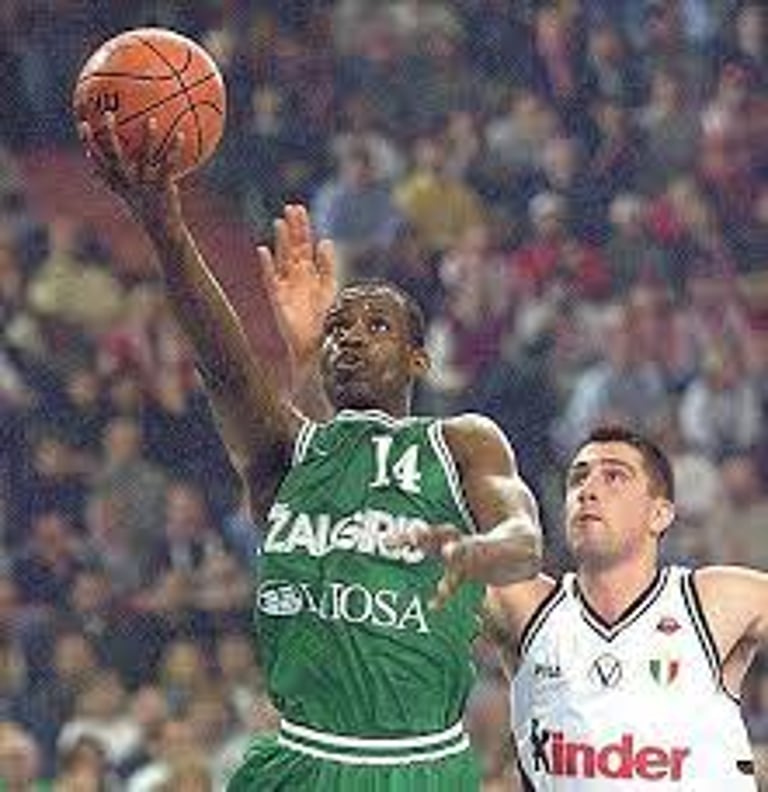
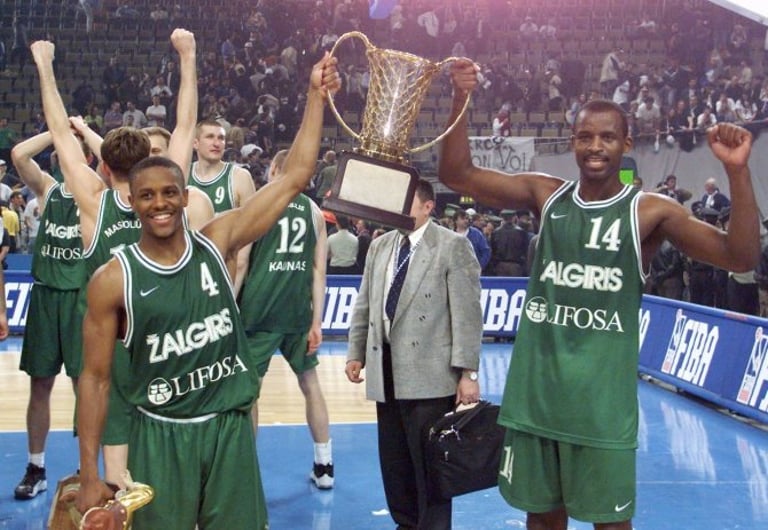
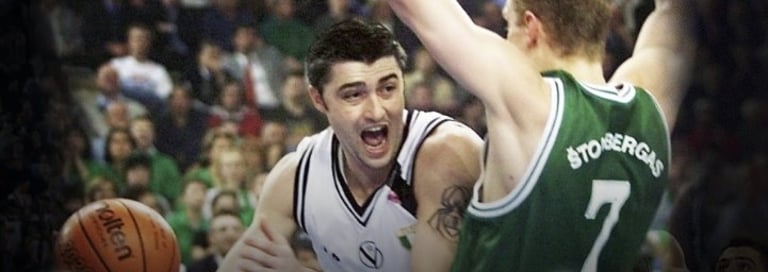
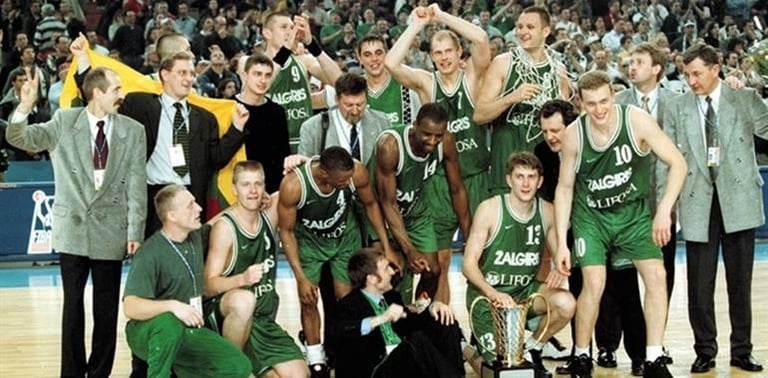
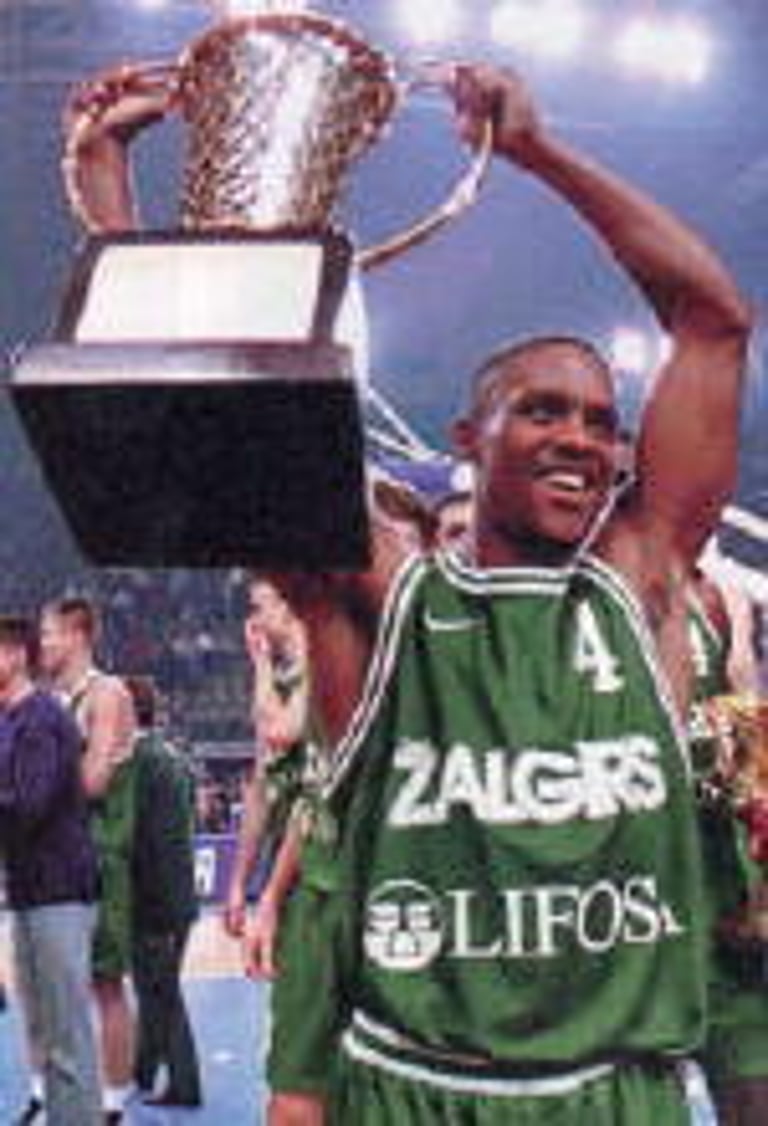





Everyone, then, expected the Zalgiris train to be derailed by Kinder’s tough defense. After all, this was the same defense that had “choked” Ioannidis’ AEK in the previous year’s final, holding them to just 44 points. Messina wanted to use the same winning recipe, while on offense, he believed Danilović, Rigadeau, and Nesterovic would overpower their opponents. The game began with the Italians attacking the low post, aiming to wear down “the octopus,” Eurelijus Žukauskas. The game remained balanced for the first few minutes - as long as Edney kept the brakes on under Kazlauskas’s orders. Then Jonas decided to unleash the “little dynamo” Tyus, something the American welcomed. Every time he got the ball, he looked for the fast break. When that wasn’t possible, he knew Bowie, Stombergas, and Mindaugas Žukauskas were positioned outside the arc, ready to shoot.
Their possessions lasted no more than 17 seconds, and the Italians were often caught off guard, resulting in many open shots. Zalgiris hit 5/5 three-pointers—100% from beyond the arc. The Italians, on the other hand, had Danilović having a bad night, with only Rigadeau performing up to standard. So the Lithuanians’ 45:30 halftime lead came as no surprise. Zalgiris kept up the pace in the second half and Kinder got trapped in Kazlauskas’ chaotic style of basketball. Instead of slowing the game down, they tried to keep up with the frenetic rhythm, and the gap continued to widen, stretching to 20 points by the 32nd minute.
Messina played his last card. With the referees’ leniency, the Italians started playing rough on defense. On offense, Ettore went with a simple setup. He pushed Sconochini to the top of the key as the playmaker. When the Argentine drove and drew defenders, the plan was to kick the ball out to Rigadeau or Danilović for a shot. The Frenchman found his mark, but the Serbian superstar had a dismal night.
Two minutes before the end, with the score at 76:70, Sconochini tried the familiar split-out move again. Bowie read the pass, stretched out, and stole it. He earned a foul from Abbio, making one of the free throws. But he saved the best for last: moments later, he hit a three-pointer that sent Kinder to the canvas. The final seconds were mere formalities. Zalgiris were the undisputed European champions, bringing joy and optimism to basketball lovers.
Unfortunately, the fairy tale ended quickly. The Kaunas team disbanded, and its stars scattered across the globe.
Some of them even made it to Greece. But in retrospect, it’s clear that Kazlauskas’s streetball style and different philosophy gave the kiss of life to a European basketball scene still wounded by Maljković’s rigid tactics. The Lithuanians showed there was another path to success. A path that opened that night, led by the MVP of the Final Four, Tyus Edney, sprinting like a madman...
